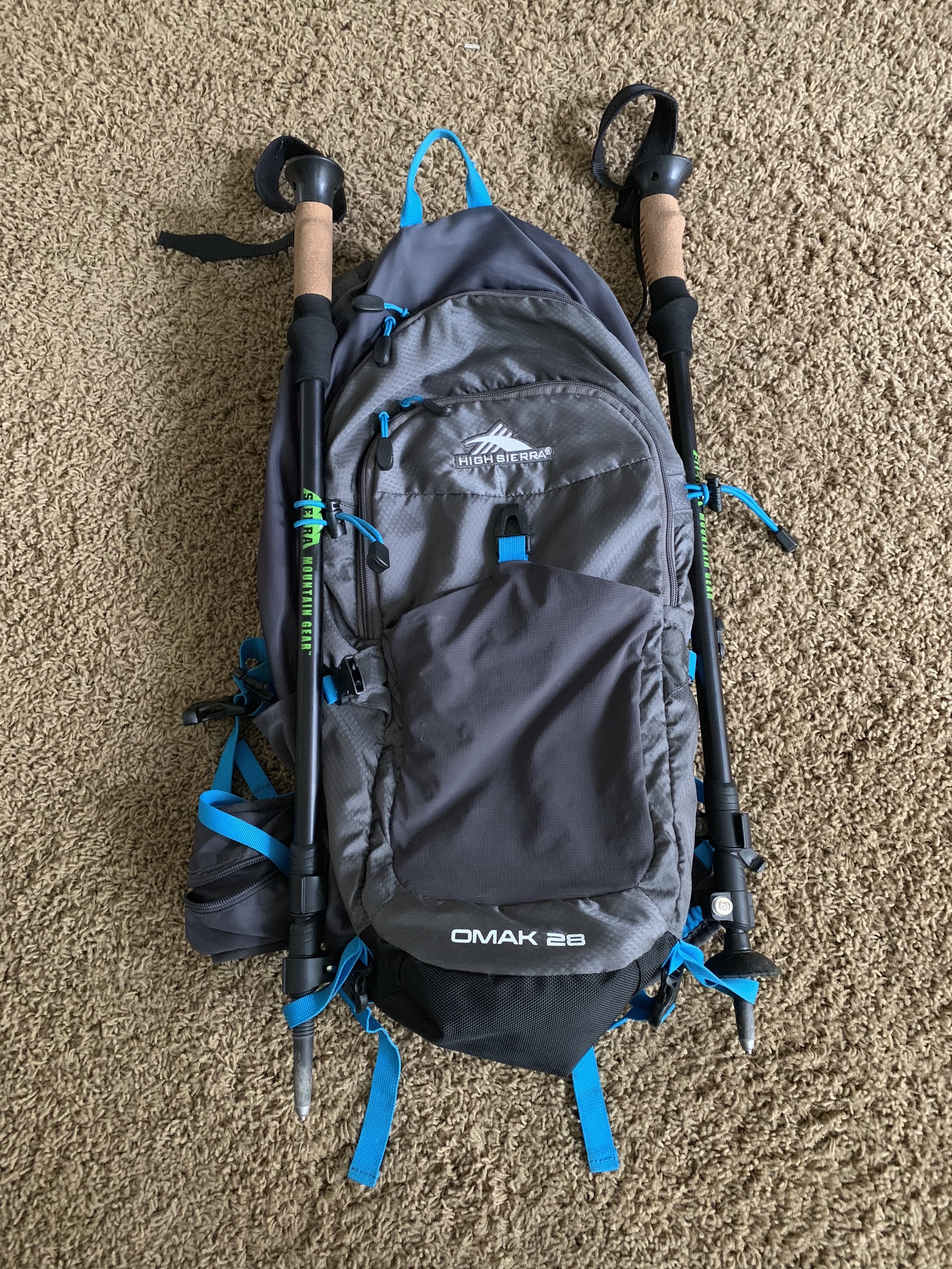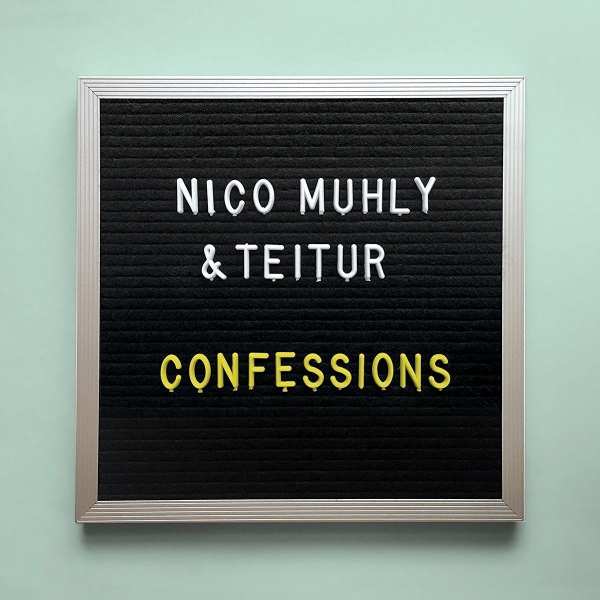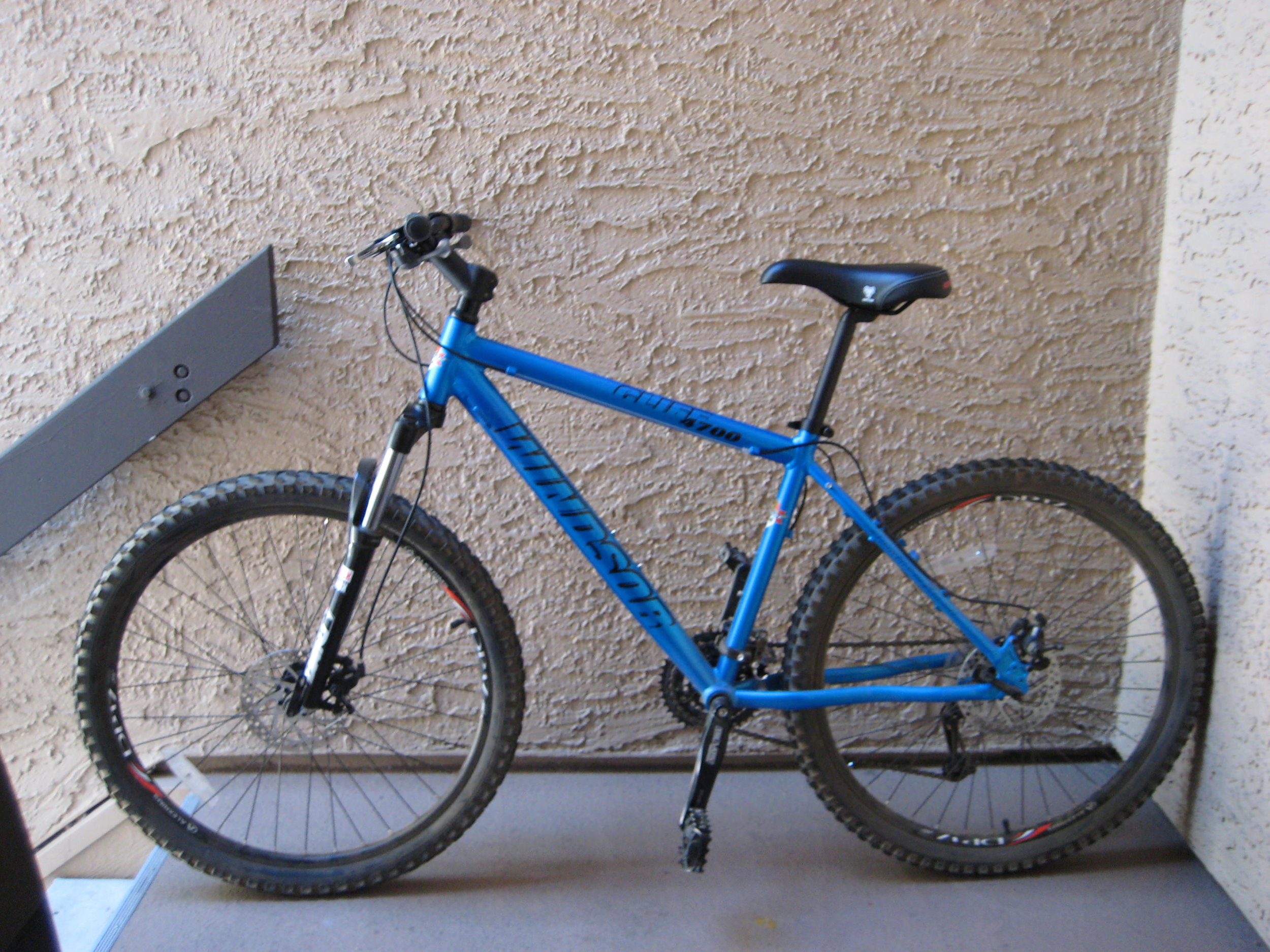Cactus to Clouds is big. If you want to complete this hike, preparation is key. Training is probably the most important form of preparation. Get out there. Climb lots of hills. Walk a lot. This trail will clock in at about 18 miles, with an elevation gain of 10,500 feet! (8,000 of those are within the first half!)
The other prep you need to keep mind is to have the right gear. Some people like to go a little (or a lot) overboard with buying new stuff—which you can do for this if you want—but this hike probably won’t equate you to spend a ton of money getting new stuff. Here is what I recommend.
Daypack
You will need a decent backpack. You don’t need anything too fancy, but a school backpack probably won’t cut it. I highly recommend something with a light frame and that will accept a hydration bladder. You will need to carry a lot of water, so there needs to be enough room to carry a gallon of water.
Here is my pack:
This pack has a nice stiff frame. This helps to distribute the weight across my hips and sternum. Without the frame, this pack might feel off balance with areas that feel “heavier” than others. This pack will also accept a hydration bladder up to 3 quarts, which gets me a long way toward all of that water-to-carry goal. It has some loops to carry trekking poles, which is handy. (More on the poles, later).
Hydration
Carry a lotof water. The first 9 miles are pretty brutal. You’ll climb 8,000 feet and won’t have access to any water. Also, since you’ll be on the desert side of the mountain, it’ll the air will be dry and it could be hot. (Even though we’ll be hiking in November, temperatures in the 90s are definitely possible once the sun starts to beat down on us.) I recommend at least a gallon of water for this first section. Then, when you get to the tram station, you can refill. I also recommend that you have some sort of electrolyte replacement option, either in addition to the gallon of water or as something you can mix with part of that gallon. I like to use a small bicycle bottle (already filled with water) and mix small powder packets into the bottle as needed.
Clothes
The temperatures will vary wildly over the course of the day. We will start before the sun comes up, but it will still be somewhere in the 70s, probably. If we are lucky, we will be able to stay ahead of the heat, but there is a chance it could get pretty hot before we reach the tram. Most of the trail is totally exposed (no tree cover) until around the tram station (9-ish miles and 7-ish hours in). Keep this in mind both for temperature and sun protection purposes. I am bald, so a hat is a must all day, but I would recommend it for everyone as the desert sun gets pretty grueling. Also, as the elevation gets higher, there is less atmosphere between you and the sun, which makes it even more likely that it will bake your face and neck.
The first time I did C2C, I wore shorts all the way to the peak. I started the day with short sleeves; when we got to the tram station I added a long-sleeved shirt. At the peak, it is cold; temperatures in the low-40s (or lower) are likely. So, I added some running tights underneath the shorts and added a fleece jacket, gloves, and “beanie” once I reached the summit. Last year, I wore pants at the start, but everything else was the same. We will arrive back at the tram after dark, so the temperature probably won’t rise much between the peak and the end of the hike. This time, I will probably start the day like this:
shorts (zip-off pants)
short-sleeved “technical” polo shirt (I like to use the collar as a sun shade (1980s preppy style)
headlamp
hat
sunglasses (once the sun comes up, of course)
By the end of the day, I will be wearing:
running tights and a long-sleeved “technical” shirt as a “base layer”
pants (zip-off legs)
a fleece jacket, beanie, and gloves
Given the amount of water and clothing you’ll need to park, you’ll find that your pack is 80% water/clothes. Plan on essentially filling you pack with water and clothes and then cramming munchies into the leftover space.
Footwear
You don’t need boots. Those are too heavy and are overkill. In fact, some nice solid trail running shoes would be better than boots. I like to “split the difference” a bit and go with some lightweight hiking shoes.
Also, wool socks are a must.
Food
There are a few options as far as food is concerned. First, you’ll need stuff to eat during the parking-lot-to-the-tram-station portion, which could be as long as eight hours. Once you get there, you can buy some food; there is a café at the tram station as well as a “convenience store” type of shop. Personally, I don’t want something that big while I am still “on the road,” so I just carry a lot of small stuff to eat throughout the day.
Trekking Poles
Trekking poles are definitely optional. Last time I didn’t use them and I think I suffered as a result. The poles come in handy when things get steep, especially when descending (at least for me). The poles provide a bit of stability, relieving some of the pressure off of your hips and knees to keep you balanced. Last year, I really struggled around miles 7 and 8 and then again before the peak; my knees and hip flexors were not pleased with me the next day. This wasn’t as much of a problem the previous year when I used the poles a lot more ... but I was also younger the first time :)
The trick to making the poles most effective is to use the loops as leverage. The loops should be behind your wrists with the strap beneath your thumb/palm; put pressure here. Most of the “propelling power” comes from the downward weight on your palms.
Training
But, of course, the most important preparation is training! I can’t really give you a proper regimen—there are lots of variables—but, my blanket advice is to just climb a lot of hills and spend a lot of time on your feet in the months before the trek. If at all possible, you should do a hike that includes at least 5,000 feet in elevation gain (and feel easily comfortable with that) within a month of embarking on Cactus to Clouds. If you are like me and live at a sub-4000’ elevation, you should get up high as much as possible as well. Honestly, though, I shouldn’t be giving out too much advice as this thing has kicked my butt both times I have done it. YMMV.



























